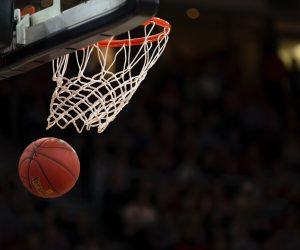In a surprise announcement, the US Supreme Court said they would hear the case regarding New Jersey attempting to get sports betting legalized. What was amazing was the high court went against the advice of acting U.S. Solicitor General, Jeffrey Wall.

New Jersey government officials had petitioned the Supreme Court to hear its appeal of a ruling by the Third Circuit Court in August that blocked its longstanding attempt to offer sports betting at its casinos and racetracks. Wall had heard from legislators, including New Jersey Congressman, Frank Pallone (D-District 6), who urged him to propose the nine justices hear the case. The solicitor general is often considered the 10th justice, because the court usually agrees with their suggestions.
In late May, Wall wrote a 23-page filing to the court recommending the they not take the case, saying it was not worthy of its time. However, the nine justices overruled his request and agreed to put it on the docket. The Trump administration has not stated a public position on the issue.
History of Case
The Garden State has tried for years to get sportsbooks established at its casinos in Atlantic City. In 2014 Governor Chris Christie signed a bill into law allowing them, but professional sports leagues and the NCAA, sued to stop the bill. That was held up in district court, the state appealed and the original ruling was upheld.
Those organizations have fought to keep wagering in four states, Nevada, Montana, Oregon and Delaware, though Las Vegas and Reno are the only places that have establishments. New Jersey casino owners and governmental officials believed having that activity in casinos would help prop up the facilities, several of which have been shuttered along the boardwalk, due to sagging revenue.
But they ran into a formidable adversary. Major League Baseball, the National Football League, National Basketball Association and National Hockey League, as well as the governing body for college athletics, objected to expanding sportsbooks to New Jersey and other states acheter diprolene en ligne. They cited the 1992 Federal Professional and Amateur Sports Protection Act (PASPA).
Federal Law Versus State’s Rights
The PASPA was instituted to outlaw sports betting, but New Jersey challenged it, arguing that it violated the 10th Amendment regarding what the federal government can dictate to individual states.
The American Gaming Association has been an advocate of New Jersey’s quest and applauded the decision.
“The Professional and Amateur Sports Protection Act (PASPA) of 1992 has failed to protect sports and fans. PASPA, which is approaching its 25th anniversary, is fueling an unregulated $150 billion illegal gambling market that continues to deprive states of vital public funding for services such as law enforcement and infrastructure,” AGA President and CEO Geoff Freeman said in a statement. “We are pleased the Supreme Court appears to have responded favorably to our arguments as to why they should hear this important case.”
Regardless of the court’s decision, which should come in the Fall, the conversation has been initiated in Congress and Pallone has recently introduced a draft legislation that would repeal PASPA.











